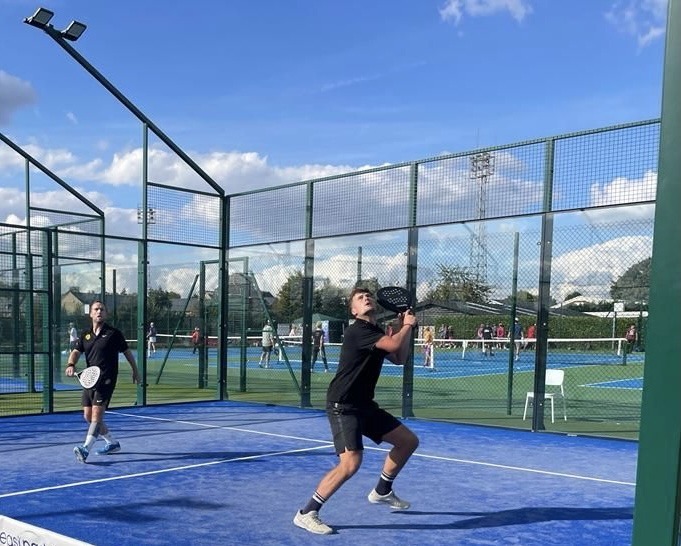A study revealed that during the COVID-19 pandemic, there was a massive upsurge in the percentage of mental health disorders.[1] The estimated global prevalence for these disorders was;
- Depression 28%
- Anxiety 26.9%
- Stress 36.5%
- Psychological distress 50%
Medical professionals also keep emphasizing the importance of mental health throughout the year. The Centers for Disease Control and Prevention (CDC) reveals that every individual out of 5 suffers through at least one mental disease every year.
It’s our recommendation to add mental health care to your daily life schedules. Because any problem related to your mental well-being can destroy the whole YOU!
After hearing this, do you see yourself adopting the habit of taking care of mental health lately? Or are you involving yourself in activities that can make any improvement?
If your answer is NO, keep reading the article to find out what can help you.
Why Is Mental Health Important?
According to the World Health Organization, Health is the state of complete physical, mental, and social well-being.[2]
So how can you ignore these aspects while talking about optimal health?
Mental health is crucial at every stage of life, from childhood to adolescence. Good mental health provokes you to perform well in activities of daily living. Also, it improves your cardiovascular, immune, and endocrine functioning.[3]
Maintaining a positive mental well-being will;
- Enhance your productivity
- Strengthen your self-image
- Improve your mood and behavior
- Increase your self-esteem
- Improve your relationships
The Role of Sports in Mental Health
Scientists from all across the globe have been exploring the relationship between sports and mental health. Fortunately, they got successful in finding out a positive association between both of these elements.
Indulging in various sports activities can be effective in resolving mental issues like;[4]
- Stress
- Depression
- General and Social Anxiety
- Loneliness
Recalling the Fastest Growing Sport – Padel
Padel sports’ popularity has touched the skies for the last few years. Still, some people are unaware of the game and its unlimited benefits.
Maybe you’ve heard about it from friends or social media and wanted to know more. Don’t worry! We will give you a brief overview.

What Is Padel And From Where It Started?
Padel is a sport somewhat similar to tennis or badminton but played between pairs. Both teams compete against each other on a rectangular court with surrounding walls.
Padel was invented in Mexico in 1969 and is popular now in Spain, Portugal, Mexico, South America, UAE, Europe, the United States, and the United Kingdom.
The Connection between Playing Padel and Your Brain
Brain-Derived Neurotrophic Factor (BDNF) is vital for neuronal survival and growth, neuronal plasticity (essential for memory and learning), and serves as a neurotransmitter regulator.[5]
A study suggested that Padel sports can stimulate the BDNF response in players during competition. Hence, playing Padel is positively associated with improved brain functioning.[6]
How Does Playing Padel Challenge Your Brain?
Padel requires more dynamic movements than tennis. It has a lot to do with the fact that the rectangular court in Padel is much smaller, and the players are pretty close to each other. The higher speed of changes in this game means your brain has to calculate faster and more where the ball will come from and what strategies you’ve to use to return the ball to another team.
Hence proved your brain and body are greatly challenged during a Padel match.
How Is Your Brain Rewarded During A Padel Match?
If you try playing Padel, it is no coincidence that you will play it more often and longer than any other sports activity.
Extreme technical skills are not required in Padel, so you can conveniently meet the challenges. When there are more challenges, more adrenaline is secreted into your brain. And if you meet those challenges, substances like dopamine and endorphins are secreted as a reward.
Getting rewards is easier in Padel as it is pretty easy to learn this sport. So, it gives you more self-confidence than other sports like tennis, badminton, etc.
The Top 8 Mental Benefits of Padel Sports
You cannot underestimate the mental benefits of sports. Keep your eyes hooked to discover the benefits of playing Padel for your mental health.
- Get Rid Of Stress And Anxiety – Even when your body is tired, your mind is excited about the competition. You are focused on winning the game, and this approach liberates your body’s stress, anxiety, and tension.
- Positive Impact On Serotonin – Serotonin is a chemical that regulates your overall mental health. It also stimulates the eminent neurotransmitter norepinephrine,’ thus improving your mood.[7]
- Release Endorphins – Endorphins are the body’s natural happy chemicals and can visibly reduce the stress hormone ‘cortisol’ levels. Padel stimulates the release of endorphins in the brain.[8]
- Improved Motor Skills – Padel involves strong coordination between the mind, arms, legs, eyes, etc. Therefore, it is directly associated with improved reflexes and motor and cognitive skills.[9]
- Better Sleep – Sleep is essential for better mental health. So those suffering from sleep problems can participate in padel sports as it is a non-pharmacological treatment for disturbed sleep.[10] [11]
- Commitment To Personal Development – Once you start playing Padel, it will improve your goal-setting, leadership, strategic thinking, risk-taking, and many other skills.
- Reduced Substance Abuse – Participating in padel sports abstains you from alcohol and substance abuse across your lifespan.[12]
- Boost Confidence – Teamwork is the best strategy to enhance confidence. Playing padel sport in pairs with a team promises to take your confidence one level up.[13]
Playing Padel Can Control Your Emotions?
Do you hear that right? Absolutely yes. Learning to control your emotions is just another essential aspect while playing Padel. Unlike tennis, the game is much easier to play and teaches you how to precisely and softly hit the ball rather than hitting hard.
Because impulsive hitting in Padel makes it difficult for the ball to hit the ground first and then bounce back, calmly playing the game can induce exceptional control over the ball and your emotions.
How Is Padel Great for Your Social Development?
Padel is played in pairs and in a smaller court, so you are more likely to interact strongly with your partners. The game is easy to play, and there is no pressure, so you are in a good mood and share a stronger bond with the players.
When your mood and behavior are better, your body’s so-called defense system is much more relaxed. This is why Padel is considered a family sport and is perfect for everyone.
Padel Can Be a Rescue!
If you’ve been through a bad or traumatic childhood experience, WE ARE VERY SORRY. But what if we introduce you to one of the best non-medicinal therapy to get out of that trauma?
Yes, it’s possible! Playing as a team in Padel sports has been associated with the following;[14]
- Better mental health outcomes
- Healthier interaction with likewise people
- Lower likelihood of anxiety
- Reduced depressive symptoms currently
What Happens If Your Mental Health Is Not Good?
When you find it difficult to manage the way you feel, think, and act in response to daily stresses, it is a sign of poor mental health. This condition doesn’t only affect a single segment of your life, but overall damage is imposed.
Symptoms of Poor Mental Health
The symptoms of poor mental health can vary in individuals. Some common problems include;
- Unable to concentrate and focus
- Extreme mood swings
- Feeling low and unhappy
- Detachment from social gatherings
- Inadequate sleep
- Suicidal thoughts
Take a Step For Yourself!
Falling into the pit of mental health disorders and then rushing to doctors is not appreciated at all. To avoid this, you must try to participate in physical or sports-related activities like Padel to be physically and mentally fit.
Wrapping It Up!
Undoubtedly, mental health is as important as your physical health.
You don’t have to wait for specific times of the year like Mental Health Day to start taking care of your mental well-being. Days like these are just a reminder that if you are showing any negligence towards your mental health, start focusing on it as early as possible.
Because if you don’t have good mental well-being, your life is nothing but monochrome.
PADEL1969 welcomes you to a platform where you will have complete and authentic information about how this sport was invented and evolved. We have put together this article to let you know that playing padel can be highly beneficial for your mental health.
Moreover, if you plan to participate in Padel sports, our website has the best quality equipment including racquets and balls to maximize your performance.
Make sure to visit our website to clear any confusion related to the fastest-growing sports activity known as Padel. Follow us on Instagram @padel1969official.
[1] Nochaiwong, S., Ruengorn, C., Thavorn, K., Hutton, B., Awiphan, R., Phosuya, C., Ruanta, Y., Wongpakaran, N., & Wongpakaran, T. (2021). Global prevalence of mental health issues among the general population during the coronavirus disease-2019 pandemic: a systematic review and meta-analysis. Scientific reports, 11(1), 10173. https://doi.org/10.1038/s41598-021-89700-8
[2] Slade M. (2010). Mental illness and well-being: the central importance of positive psychology and recovery approaches. BMC health services research, 10, 26. https://doi.org/10.1186/1472-6963-10-26
[3] Neve, Jan-Emmanuel & Diener, Ed & Tay, Louis & Xuereb, Cody. (2013). The Objective Benefits of Subjective Well-Being.
[4] Fossati, C., Torre, G., Vasta, S., Giombini, A., Quaranta, F., Papalia, R., & Pigozzi, F. (2021). Physical Exercise and Mental Health: The Routes of a Reciprocal Relation. International journal of environmental research and public health, 18(23), 12364. https://doi.org/10.3390/ijerph182312364
[5] Bathina, S., & Das, U. N. (2015). Brain-derived neurotrophic factor and its clinical implications. Archives of medical science: AMS, 11(6), 1164–1178. https://doi.org/10.5114/aoms.2015.56342
[6] Pradas, F., Cádiz, M. P., Nestares, M. T., Martínez-Díaz, I. C., & Carrasco, L. (2021). Effects of Padel Competition on Brain Health-Related Myokines. International journal of environmental research and public health, 18(11), 6042. https://doi.org/10.3390/ijerph18116042
[7] Kang, S. H., & So, W. Y. (2018). Effect of Competitive and Non-competitive Exercise on Serotonin Levels in Adolescents with Various Levels of Internet Gaming Addiction. Iranian journal of public health, 47(7), 1047–1049.
[8] Harber, V. J., & Sutton, J. R. (1984). Endorphins and exercise. Sports medicine (Auckland, N.Z.), 1(2), 154–171. https://doi.org/10.2165/00007256-198401020-00004
[9] Sánchez-Alcaraz, B. J., & Courel-Ibáñez, J. (2022). The Role of Padel in Improving Physical Fitness and Health Promotion: Progress, Limitations, and Future Perspectives-A Narrative Review. International journal of environmental research and public health, 19(11), 6582. https://doi.org/10.3390/ijerph19116582
[10] Freeman, D., Sheaves, B., Goodwin, G. M., Yu, L. M., Nickless, A., Harrison, P. J., Emsley, R., Luik, A. I., Foster, R. G., Wadekar, V., Hinds, C., Gumley, A., Jones, R., Lightman, S., Jones, S., Bentall, R., Kinderman, P., Rowse, G., Brugha, T., Blagrove, M., … Espie, C. A. (2017). The effects of improving sleep on mental health (OASIS): a randomised controlled trial with mediation analysis. The lancet. Psychiatry, 4(10), 749–758. https://doi.org/10.1016/S2215-0366(17)30328-0
[11] Kline C. E. (2014). The bidirectional relationship between exercise and sleep: Implications for exercise adherence and sleep improvement. American journal of lifestyle medicine, 8(6), 375–379. https://doi.org/10.1177/1559827614544437
[12] Thompson, T. P., Taylor, A. H., Wanner, A., Husk, K., Wei, Y., Creanor, S., Kandiyali, R., Neale, J., Sinclair, J., Nasser, M., & Wallace, G. (2018). Physical activity and the prevention, reduction, and treatment of alcohol and/or substance use across the lifespan (The PHASE review): protocol for a systematic review. Systematic reviews, 7(1), 9. https://doi.org/10.1186/s13643-018-0674-0
[13] Lochbaum, M., Sherburn, M., Sisneros, C., Cooper, S., Lane, A. M., & Terry, P. C. (2022). Revisiting the Self-Confidence and Sport Performance Relationship: A Systematic Review with Meta-Analysis. International journal of environmental research and public health, 19(11), 6381. https://doi.org/10.3390/ijerph19116381
[14] Easterlin, M. C., Chung, P. J., Leng, M., & Dudovitz, R. (2019). Association of Team Sports Participation With Long-term Mental Health Outcomes Among Individuals Exposed to Adverse Childhood Experiences. JAMA pediatrics, 173(7), 681–688. https://doi.org/10.1001/jamapediatrics.2019.1212



2 Comments
Padel is definitely a very good sport and great to see worldwide growth.
Indeed, Padel is the fastest-growing wellness business worldwide.